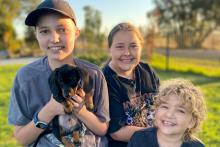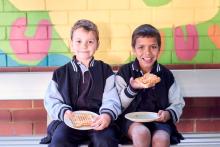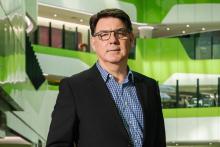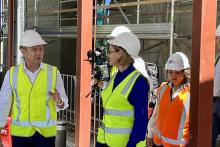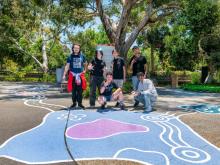World Mental Health Day, held on October 10 each year, presents an opportunity to review gaps in mental health supports and explore initiatives working to build a more resilient community.

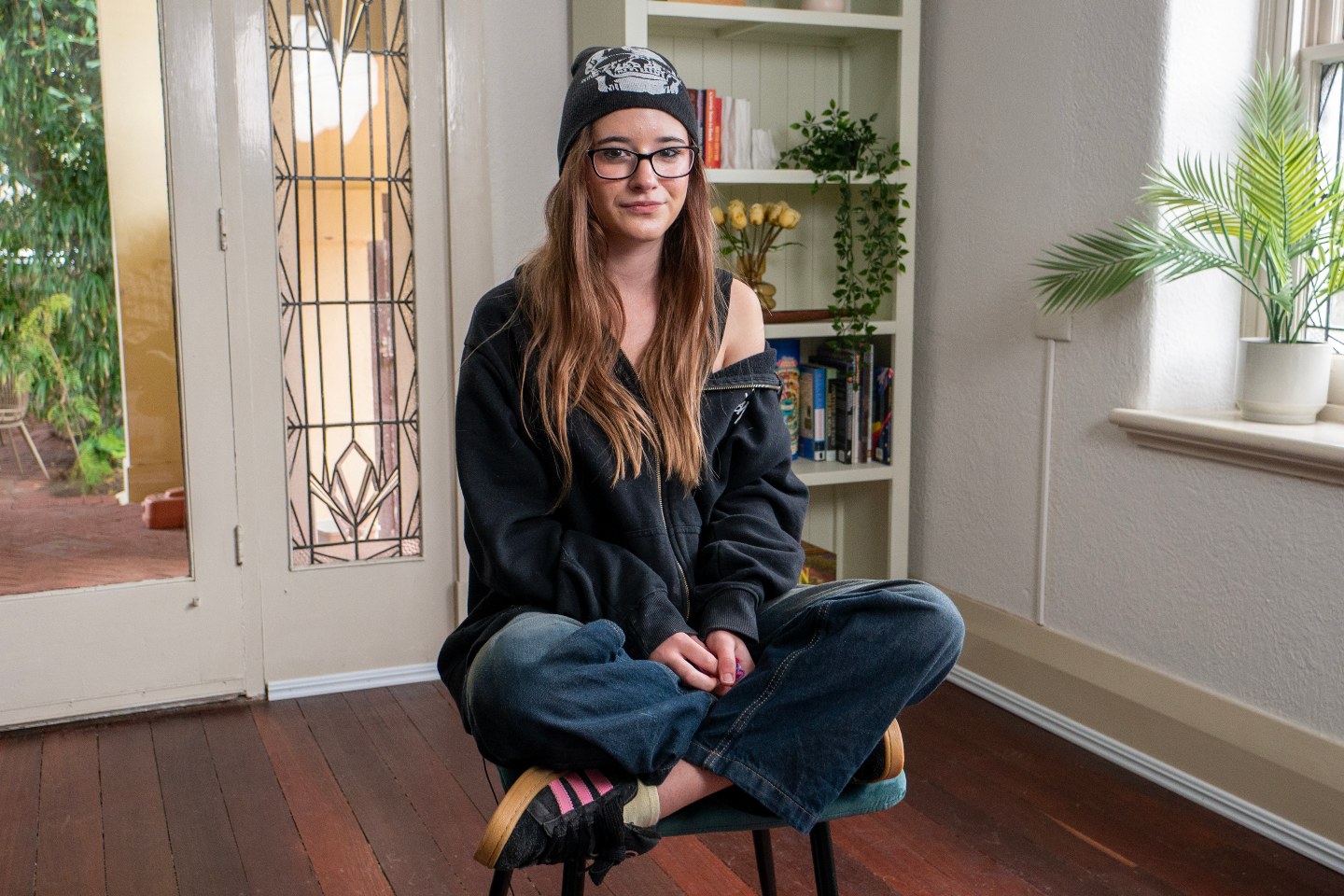
World Mental Health Day, held on October 10 each year, presents an opportunity to review gaps in mental health supports and explore initiatives working to build a more resilient community.
Foodbank WA chief executive Kate O’Hara highlighted the deep connection between mental health and social determinants of health.
“Access to nutritious food, stable housing and supportive communities are essential for maintaining mental wellbeing,” Ms O’Hara said.
“By addressing food insecurity and other social determinants, we can create a foundation for mental wellness and resilience.
“Effective prevention strategies are key to keeping our communities mentally healthy.”
A strong community is built on compassion and understanding, according to Ms O’Hara, and many charitable organisations in Western Australia like Foodbank WA are striving to a create better future for everyone.
“We must encourage everyone to support and look out for one another,” she said.
“Food security is woven into the fabric of our overall health and we know that we can addressing food security relatively quickly can help alleviate some of the stressors that impact mental health.
“By providing access to nutritious food, we provide mental space for individuals focus on other critical aspects of their lives, including their mental health and wellbeing.”
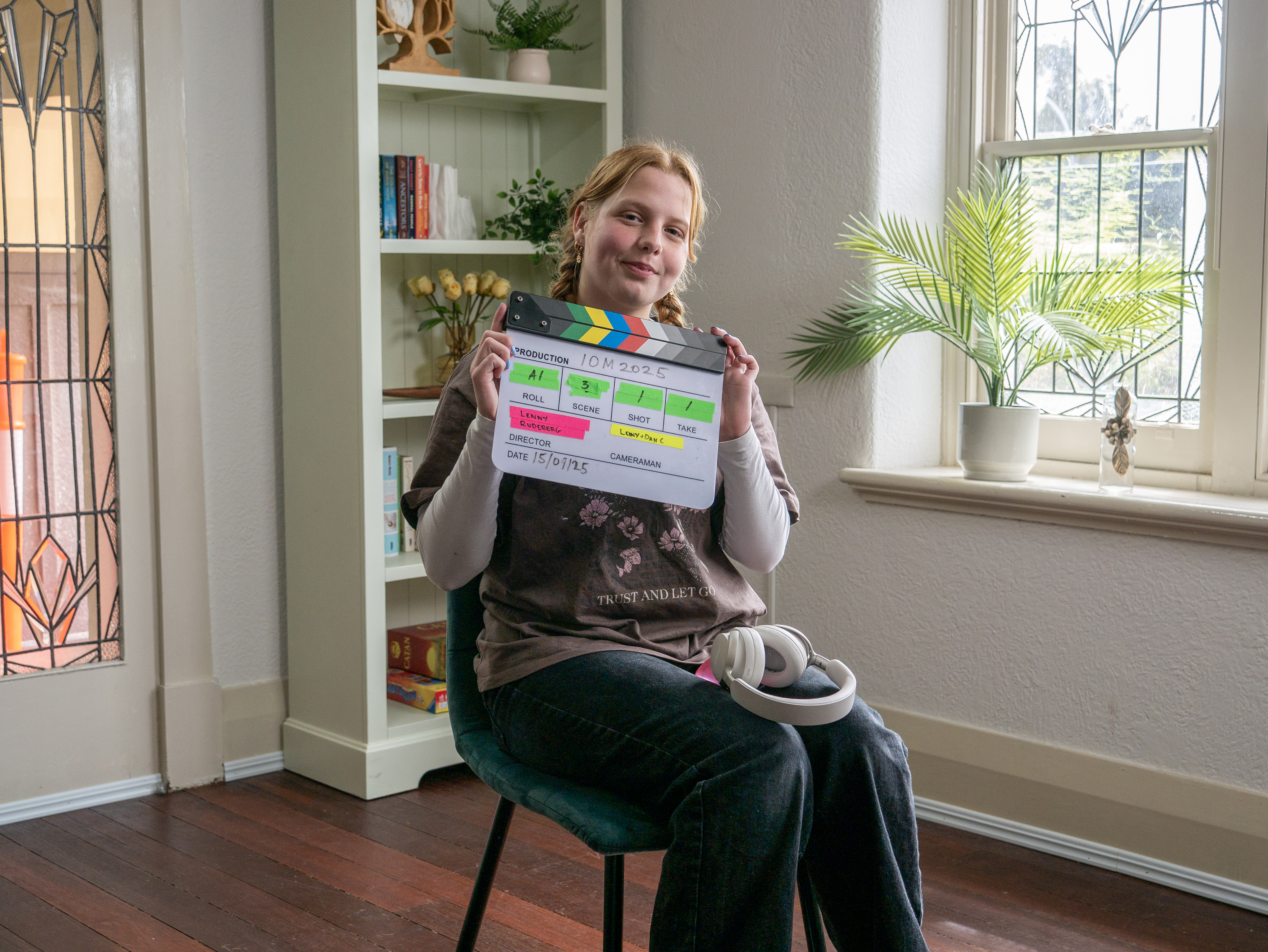
Emily attends the Y School in Mirrabooka and took place in this year's mental health video series.
World Mental Health Day 2025 takes place at the end of WA’s own Mental Health Week, which runs from October 4 to 11.
To kick-off the week, the Y WA launched the seventh rendition of its short film series Inside Our Minds, a powerful showcase of young people’s mental health struggles.
This year’s award-winning series amplifies the perspectives of seven courageous neurodivergent young people and examines the ways their distinctive cognitive, sensory and experiential approaches influence their mental health pathways.
An estimated 15 to 20 per cent of children and teenagers in the education system in Australia are neurodivergent, with cases including ADHD, autism, complex mental illnesses, anxiety and depression.
As part of the Inside Our Minds initiative, one video has been released each day during WA Mental Health Week, being uploaded on the Y WA’s social media as well as screened at Northbridge Piazza, Yagan Square and the Curtin University campus.
“The voices of our youth are driving change during this important week, with a goal to let other young people suffering from mental health, specifically neurodivergence, know they are not alone.” The Y WA chief executive Tim McDonald
The Y WA partnered with Lyn Beazley Academy for the 2025 video series, with five of the brave young people in the videos coming from the unique enrichment program for home-schooled, high school aged youth.
The other two young people who participated in Inside Our Minds attend the Y School in Mirrabooka, an alternative learning pathway for students in years 10 to 12 who have struggled in traditional schooling environments.
Lyn Beazley Academy student Daisey Brophy is 16 years old and courageously shared her story publicly for the first time through the Y WA’s initiative.
“I live with neurodivergence, struggling with things like anxiety, autism, burnout and sensory issues,” she said.
“Year eight was a real challenge; I was in the depth of an autistic burnout, but my family saved me. They made me realise that it was no way to live, and I needed to start fighting for my happiness.
“I wanted to take part in Inside Our Minds to raise awareness for neurodivergence and to debunk untruths.”
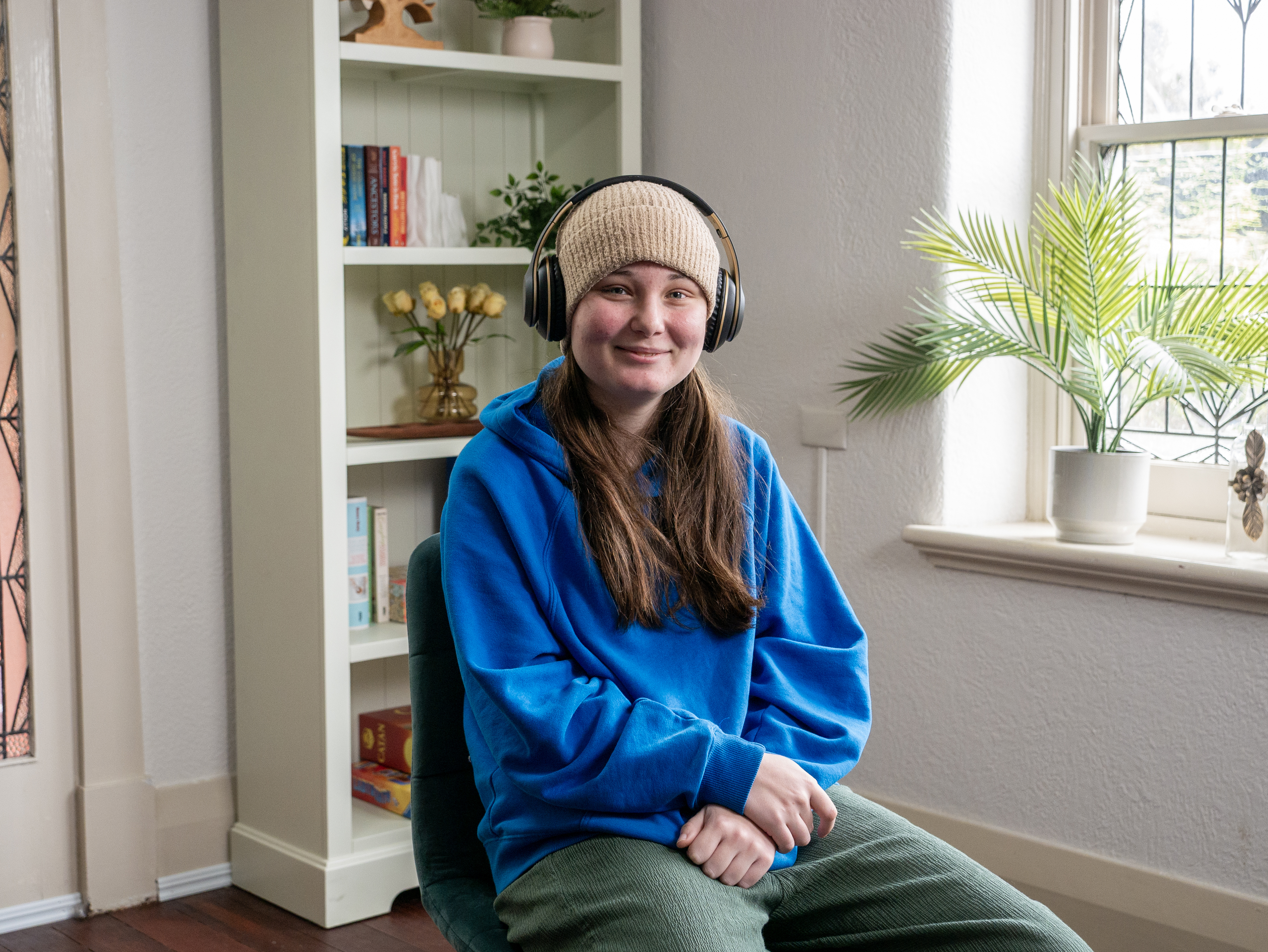
Lyn Beazley Academy student Daisy Brophy is passionate about raising awareness for neurodivergence.
Inside Our Minds was started by Martin Johnson, a young person at the Y WA and aims to reduce stigma, raise awareness and encourage support-seeking of the mental ill-health of young people in WA.
Each year the project works with young people from traditionally underrepresented communities with past themes including culturally and linguistically diverse young people, Indigenous mental health and LGBTQIA+ young people.
The Y WA chief executive Tim McDonald said the video series allows young participants to share their stories in their own words and on their own terms.
“Through honest storytelling, Inside Our Minds gives young people a platform to share their lived experiences with mental health,” Dr McDonald said.
“The voices of our youth are driving change during this important week, with a goal to let other young people suffering from mental health, specifically neurodivergence, know they are not alone.”
For the first time, the video series was produced entirely in-house by the talented Y WA team in 2025, who worked tirelessly across talent liaison, filming, editing, and production to create a powerful and authentic insight into the lives of young people living with neurodivergence.
Arts to improve mental wellbeing
Supporting young minds and enhancing the mental wellbeing of vulnerable children are also key focuses for Perth Children’s Hospital Foundation (PCHF).
Visiting Perth Children’s Hospital (PCH) can be overwhelming and distressing for both children and families, so PCHF has funded an arts program to create little moments of magic in the everyday for patients and their loved ones during hospital visits and stays.
The correlation between the arts and good mental health is well documented and researched, with more creative activities being integrated into clinical environments.
“Mental health is one of the most pressing challenges of our modern lives and we’re seeing more and more issues in young people.” PCHF chief executive Carrick Robinson
The arts help support social and emotional wellbeing and tapping into their creativity allows participants to relax their minds while keeping their hands busy.
Child and Adolescent Health Service (CAHS) executive director Ali Devellerez said the PCHF-funded arts program transformed hospital stays into more positive and unique experiences for children and their families.
“It has a great effect in terms of just reducing the stress of the family while in hospital and if they can have a less stressful experience, then that obviously leads to better health outcomes for the child while they’re here,” Ms Devellerez said.
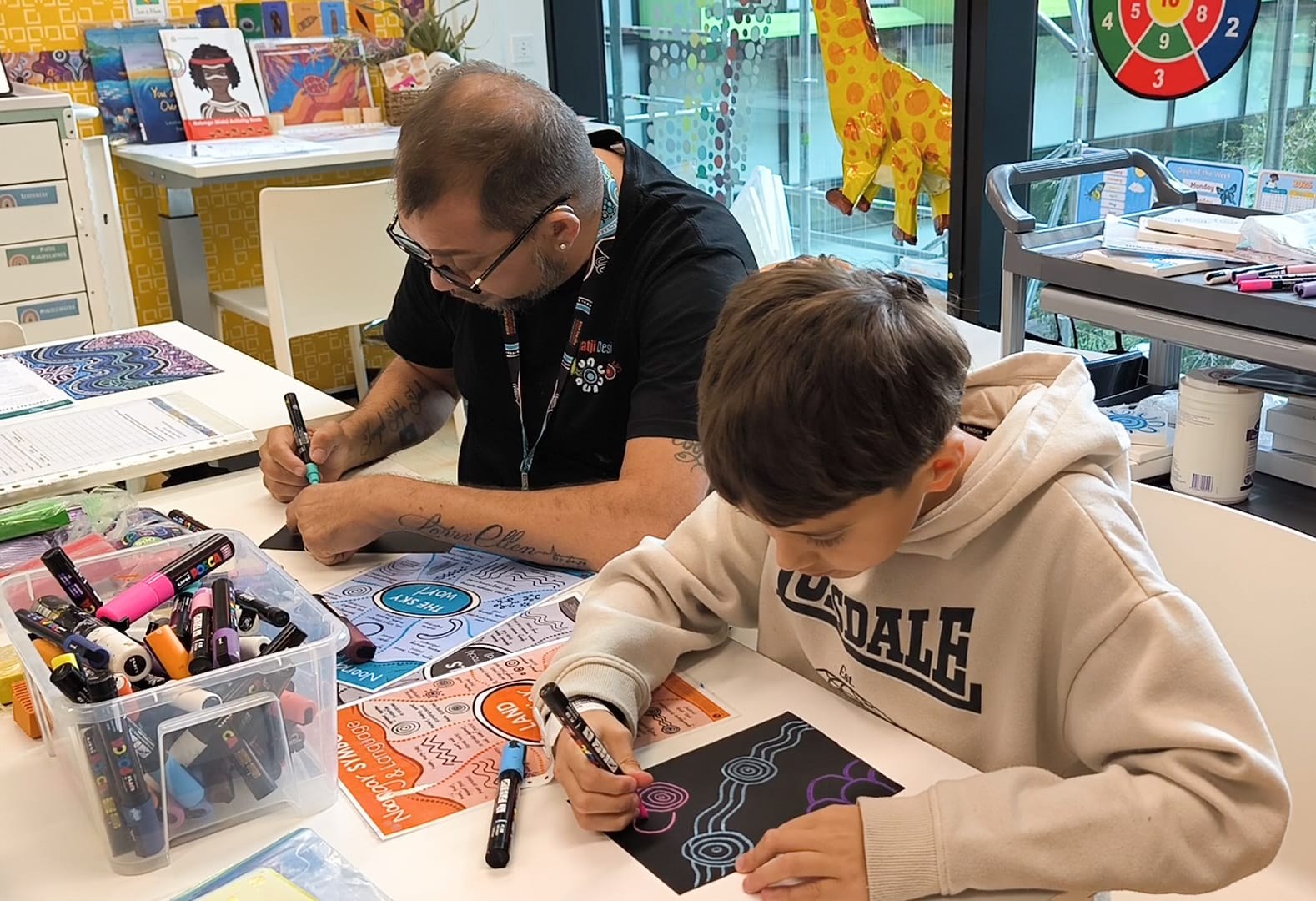
The PCHF-funded arts program nurtures mental health through art during hospital visits and stays.
The well-rounded arts program is catered to patients aged four to 16 years, as well as siblings and parents visiting PCH.
The program has a cultural emphasis and includes puppetry, a sensory experience of live music bringing books to life, video Claymation telling Aboriginal dreaming stories, and mandala art.
The ancient practice of mandala art creates a fun and safe environment for children to discover techniques to connect with themselves, calm the mind and explore their creative side.
“The mandala art program, which is delivered for children staying on our mental health ward, has been very successful,” Ms Devellerez said.
“The artists set up in the courtyard outside in a calming environment, so not only is there the art connection, but they are also outside in nature, in the fresh air; all of those things that are really great for a person’s mental health.”
New addition for mental health care
For the first time in children’s mental health care in WA, PCHF is funding two state-of-the-art sensory rooms in the PCH mental health unit with the support of ToyBox Australia.
Sensory rooms use the therapeutic concept of sensory modulation to guide patients through a range of experiences and stimulation using sight, sound, touch and light to help them self-regulate emotions and reduce distress.
Features are set to include soothing soundscapes, curved walls and adjustable lighting, offering a space of calm and reflection for children experiencing highly complex and challenging mental health crises.
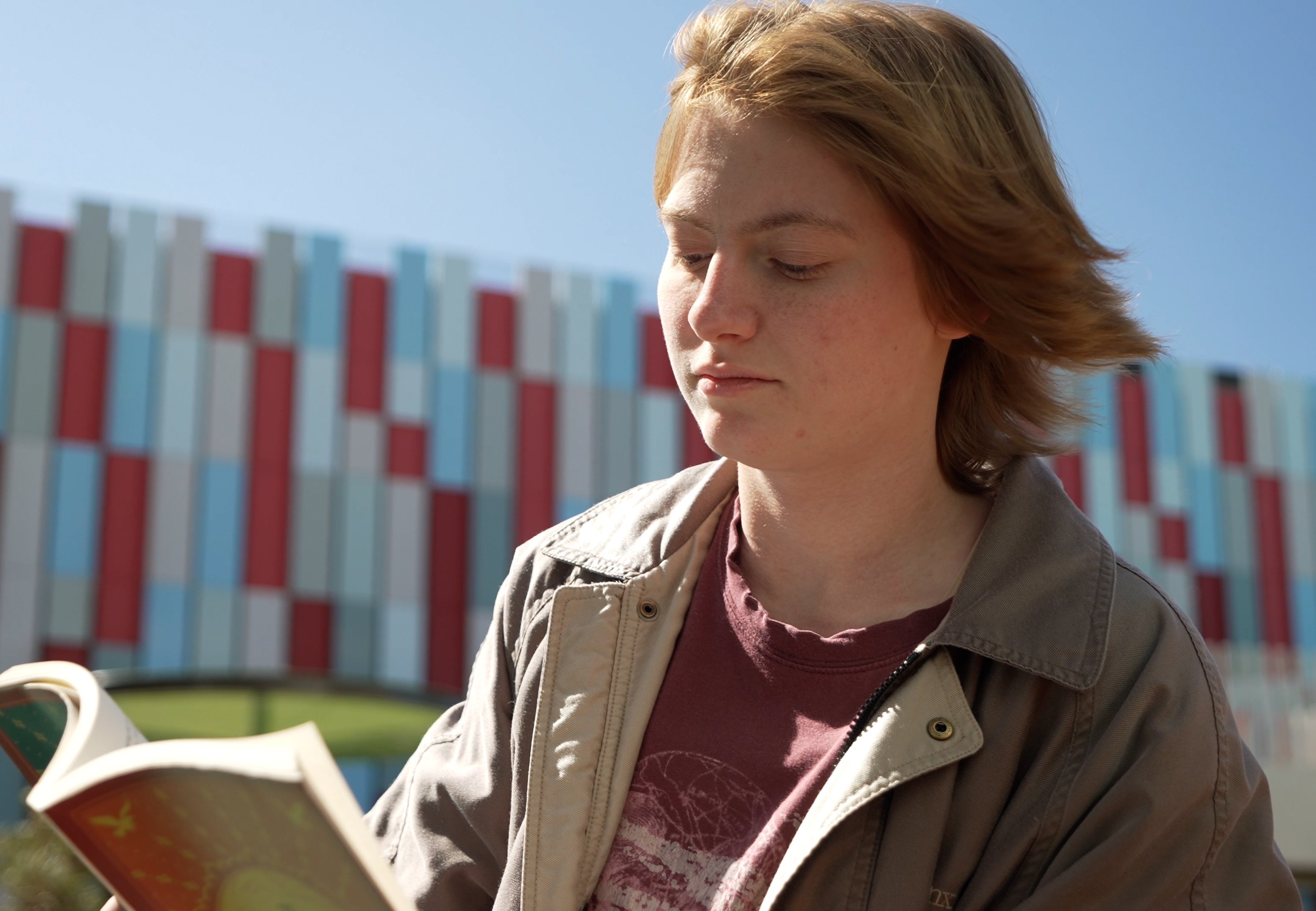
Former PCH patient Harley Muller spoke highly of the hospital's new sensory rooms.
The sensory rooms will help children self-regulate their emotions to reduce agitation, aggression, emotional dysregulation and risk of self-harm.
Aged 20 years, Harley Muller is a former PCH patient who has struggled with mental health challenges and said the sensory rooms would offer a way to escape the pressures of being in hospital.
“Sometimes when you’re on the ward, you just need to get away from everything that’s going on and you need a space to reset and relax,” Harley said.
“If people have a nice sensory space they can go to relax and chill out, they’re less likely to escalate to the point where they need seclusion.”
PCHF chief executive Carrick Robinson said supporting the mental health and wellbeing of WA’s children and young people is an increasing area of focus for the foundation.
“Mental health is one of the most pressing challenges of our modern lives and we’re seeing more and more issues in young people,” Mr Robinson said.
“As the only charity solely dedicated to supporting PCH, we’re uniquely placed to assist and, as needs grows, we’ll be there to help fund mental health research and other support requirements.”
- If this article has raised any issues for you, call Lifeline on 13 11 14





